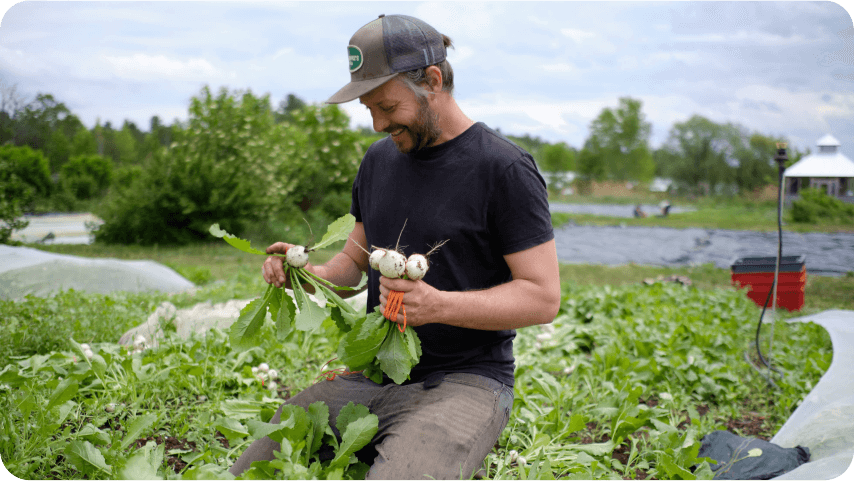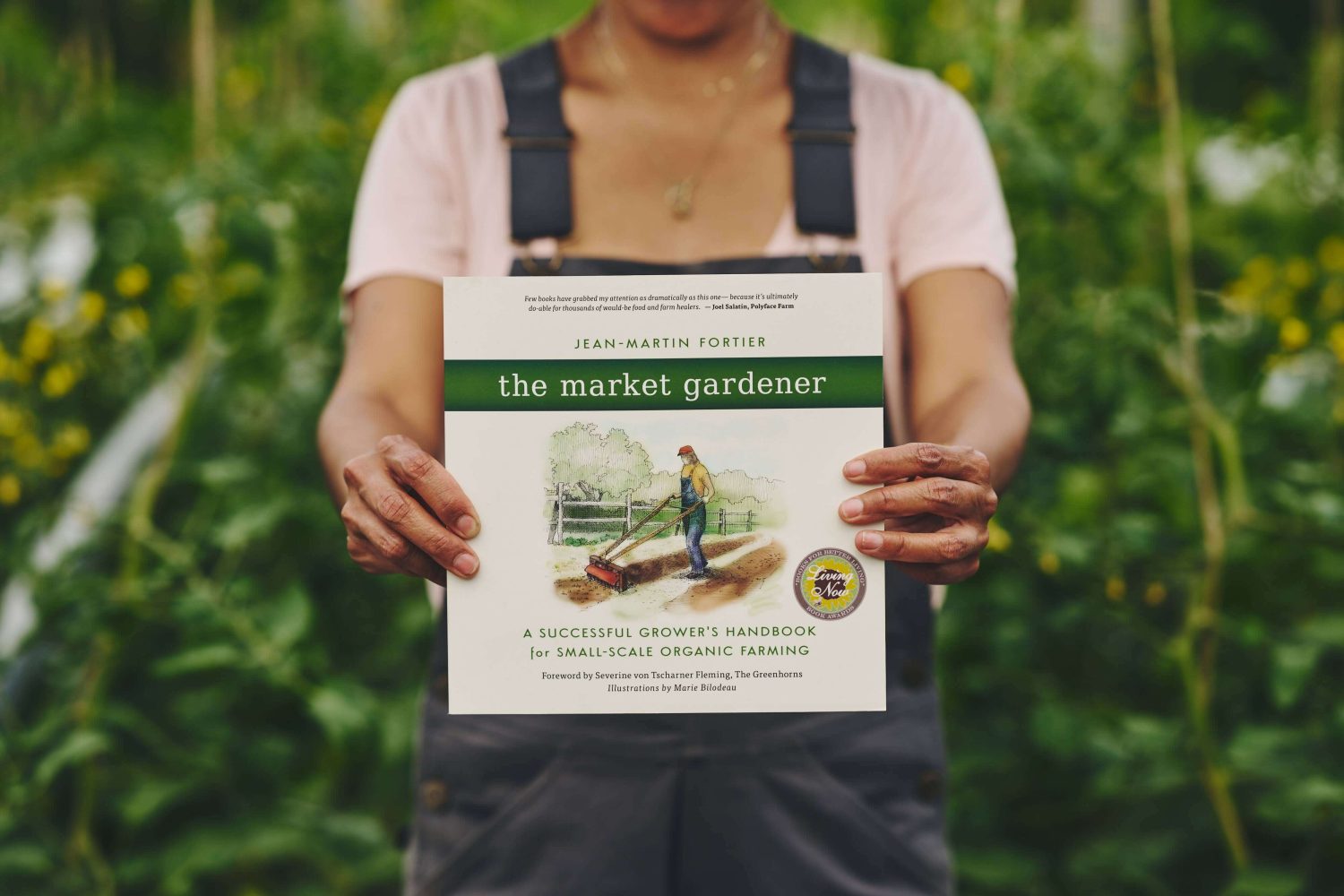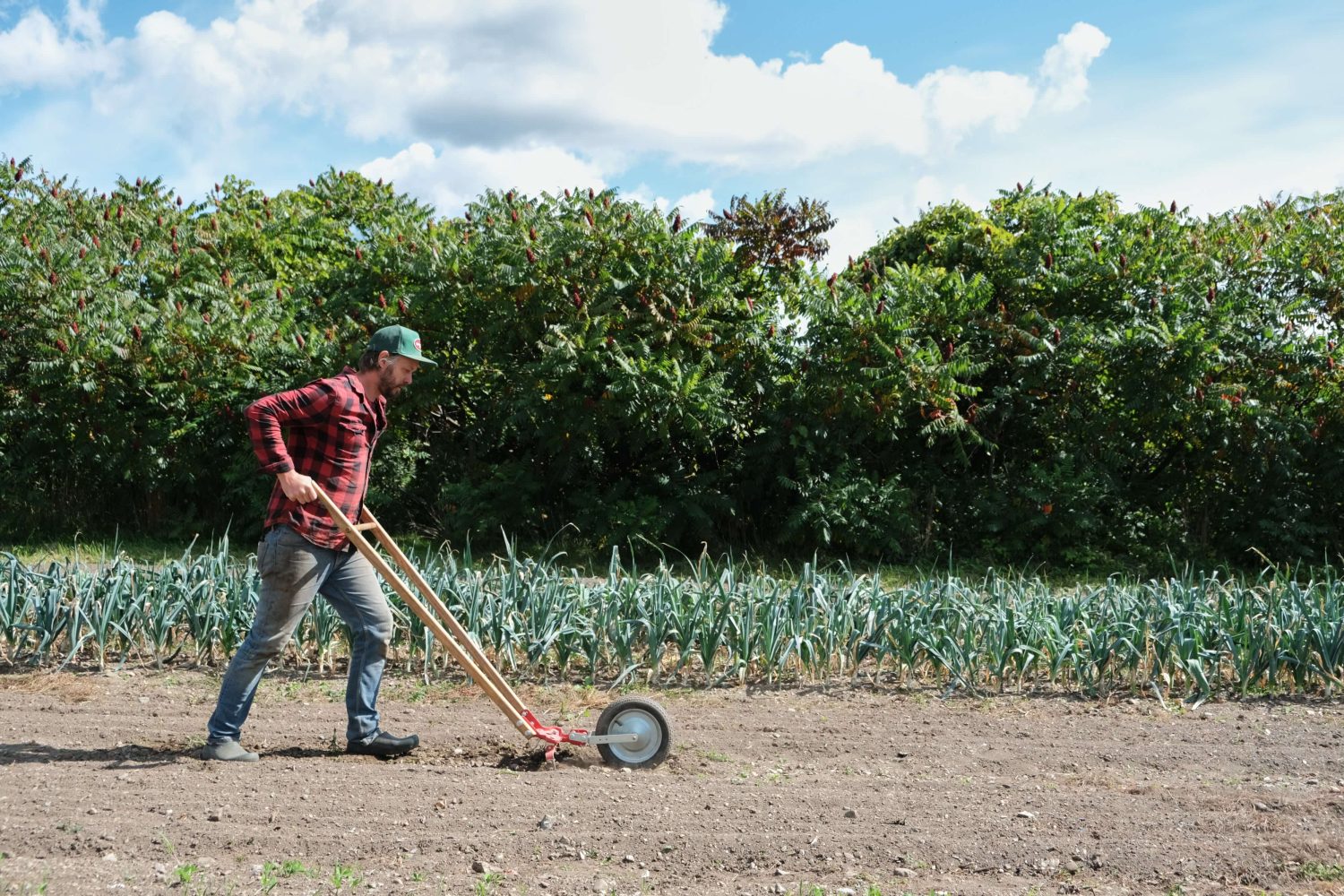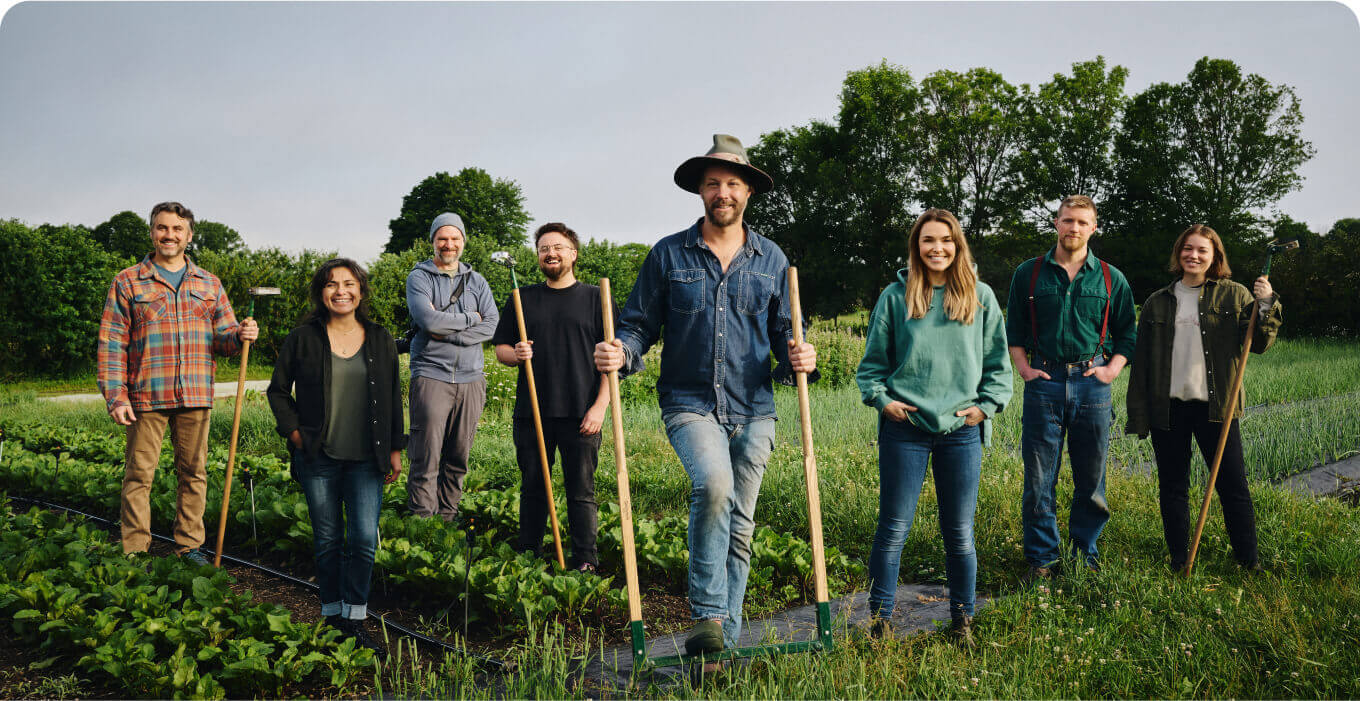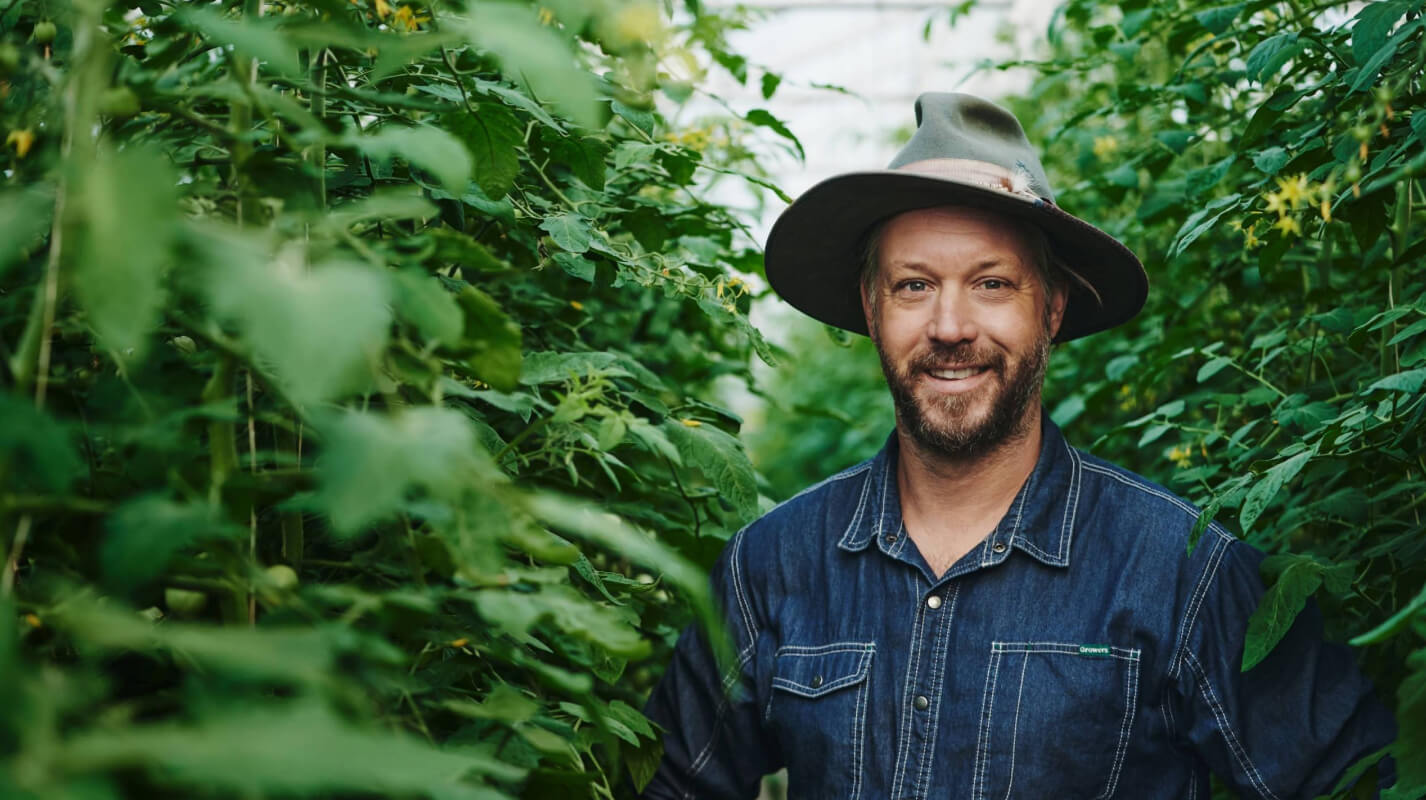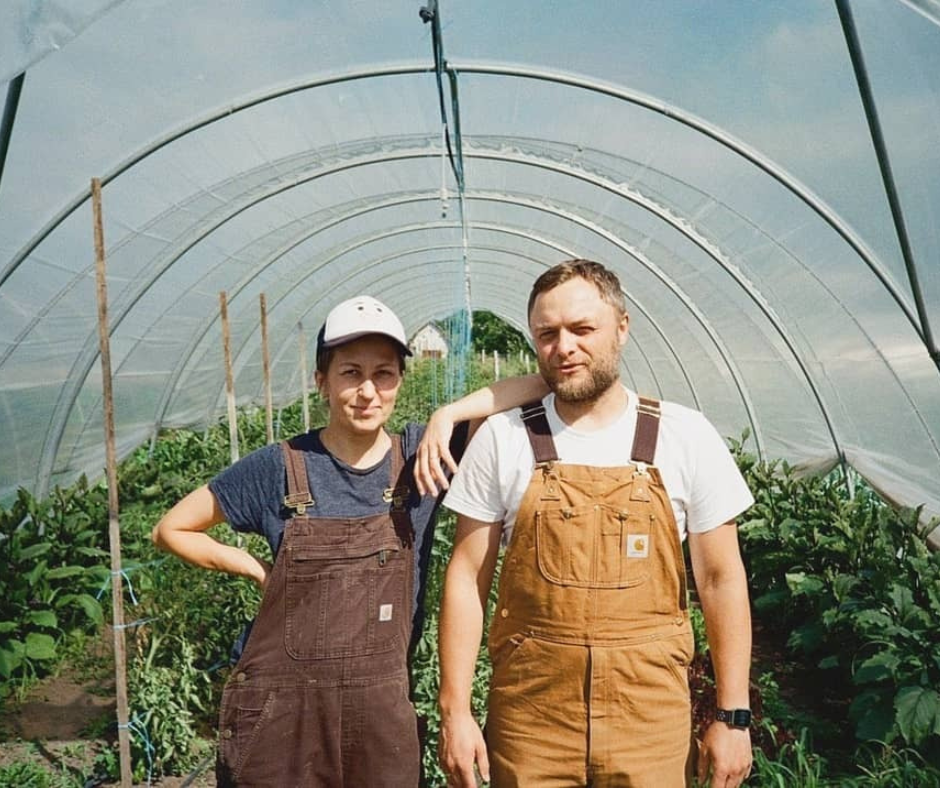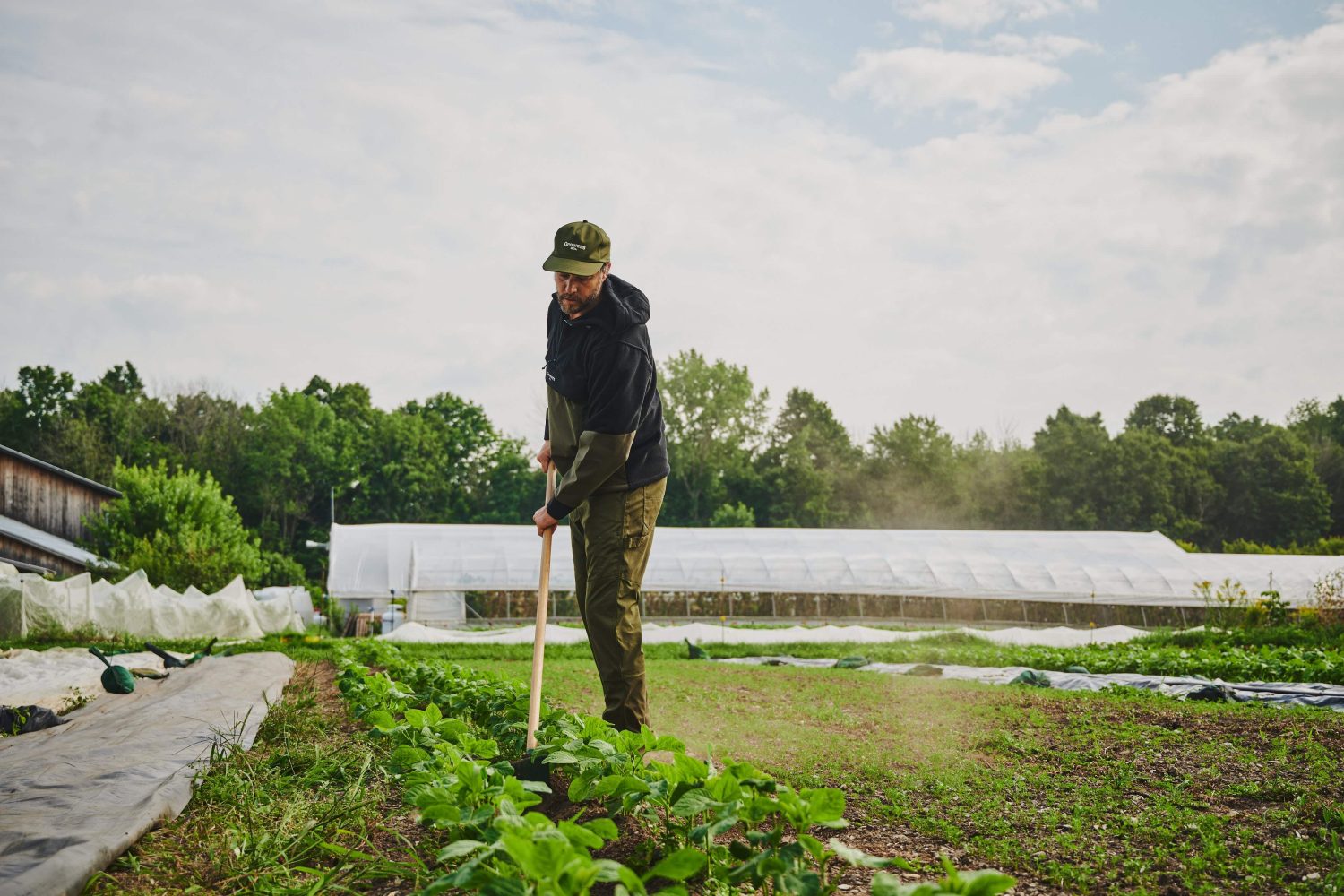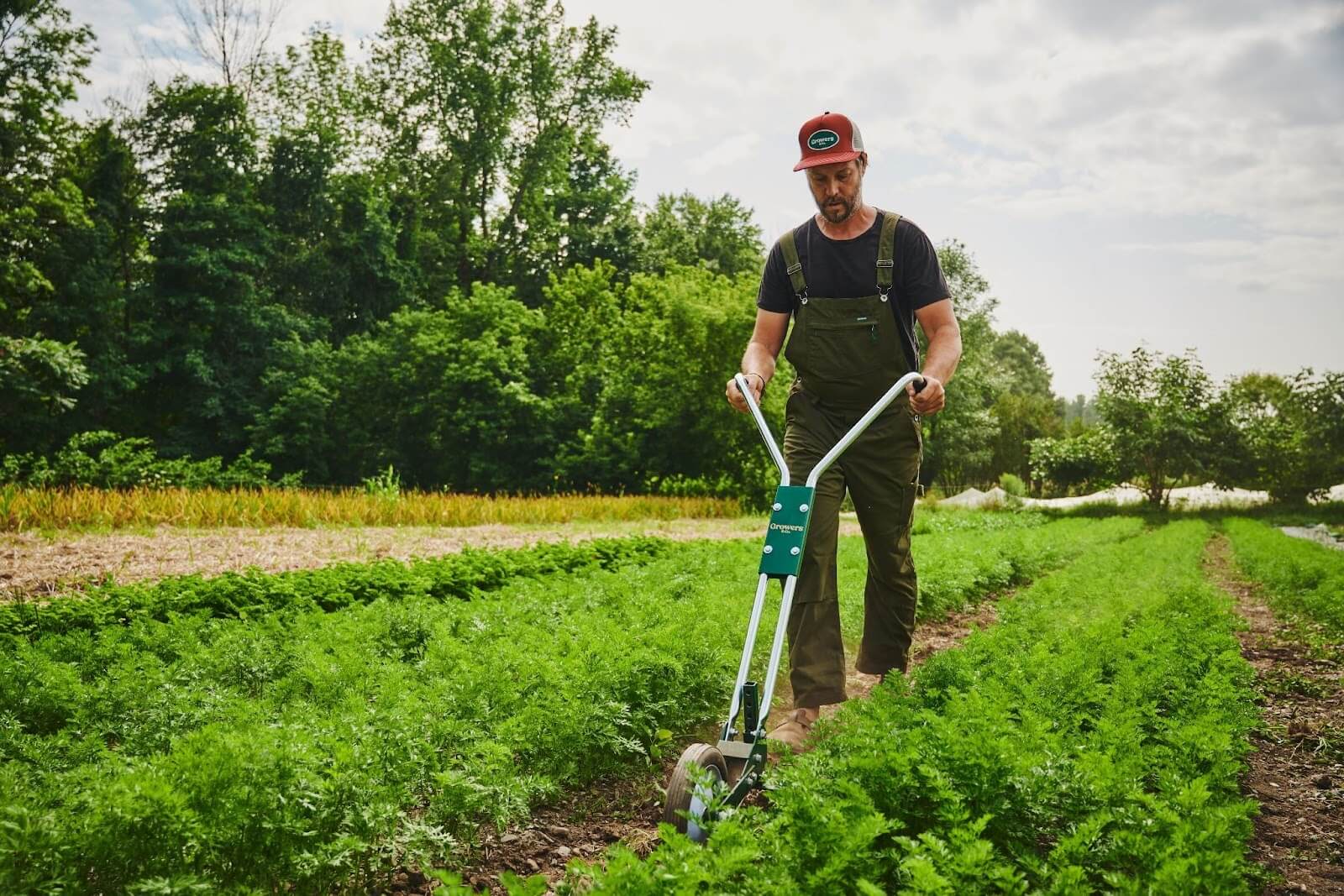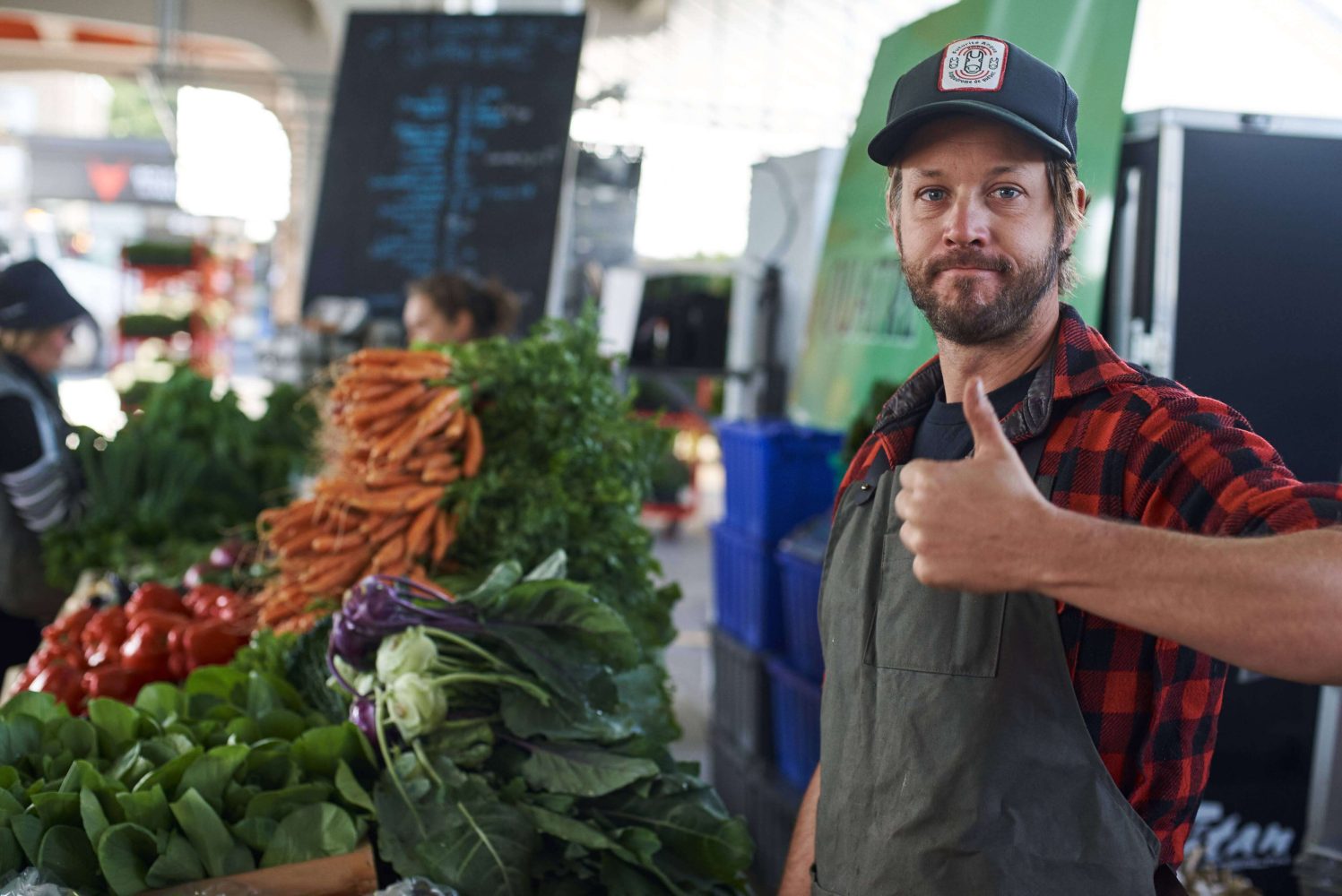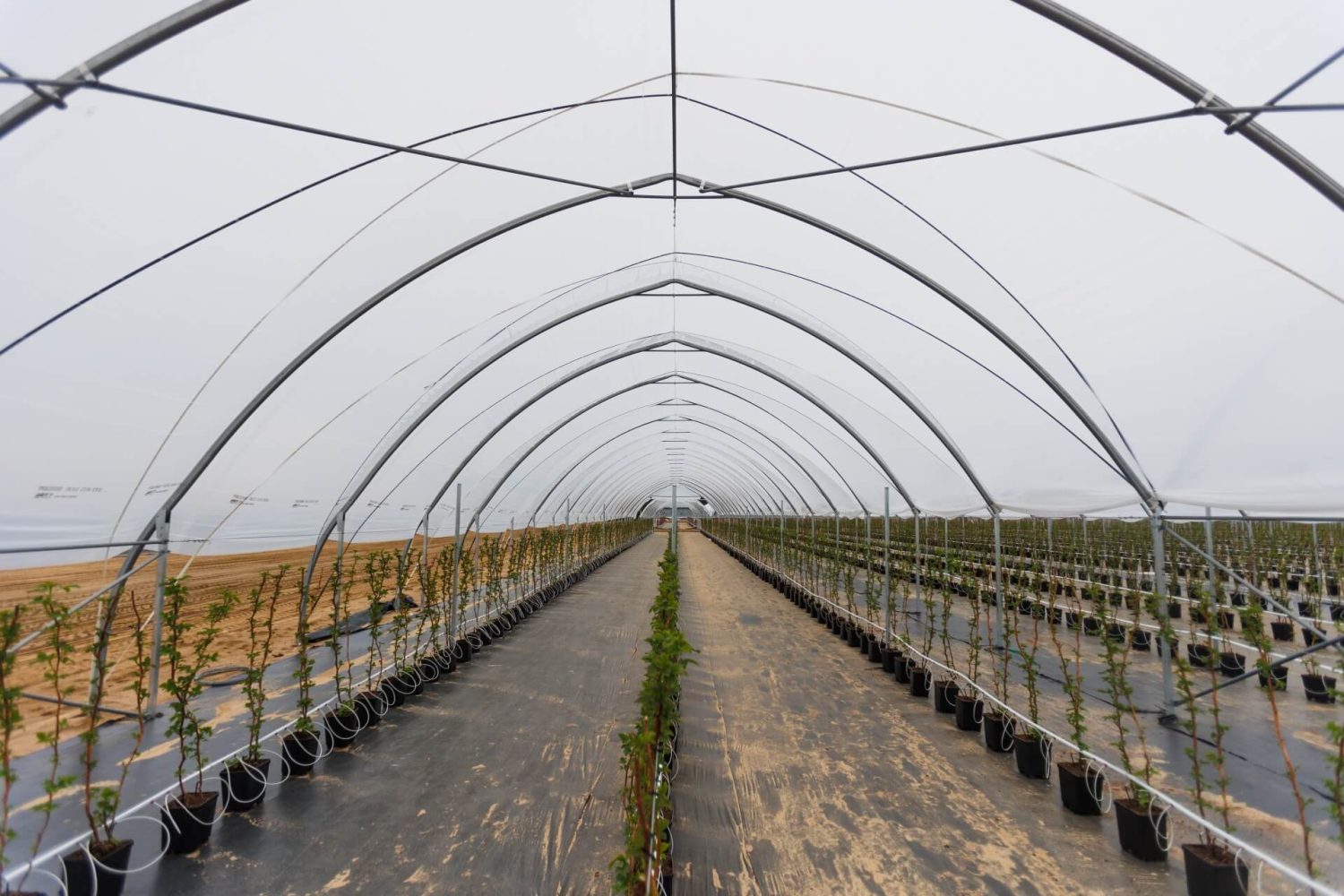It is a beautiful May morning on the farm: the birds are singing, the frogs are croaking in the pond, and the seedlings are green in the field. Sitting on my veranda, I open my laptop and read an email I just received. Dima and Ira Morkva are a young couple of market gardeners from the Kyiv region of Ukraine. The start of their farming season was interrupted by the approach of war. They had to flee with their two children to take refuge in another region of the country.
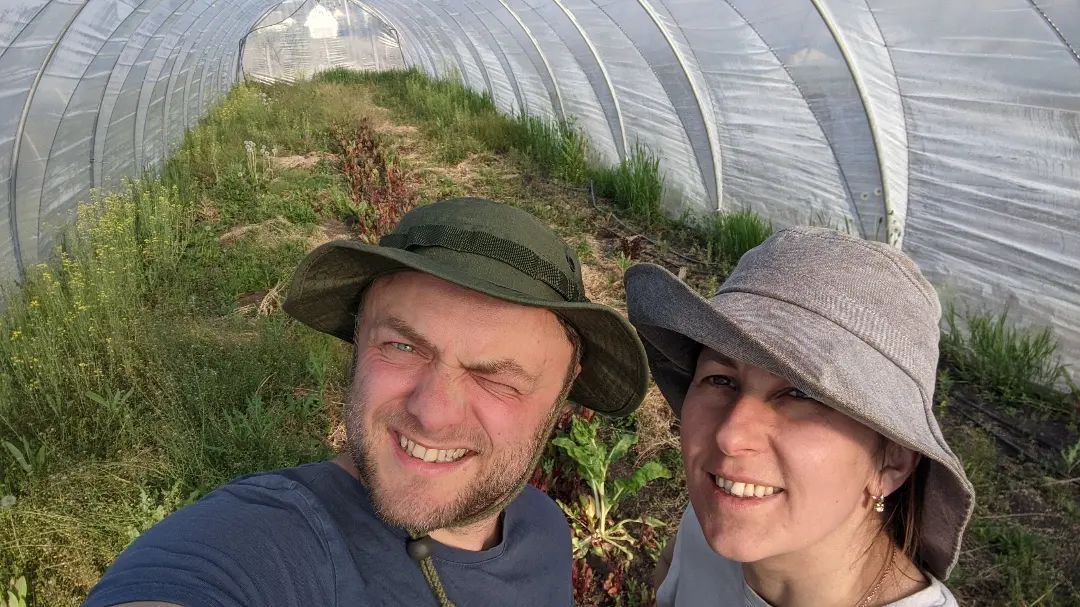
After several weeks of fighting, the immediate danger having passed, they returned to their farm to deal with what a market gardener might see as a ruined season: dead seedlings in the nursery, weeds that have taken over the tunnels and the fields, and the entire crop plan to redo.
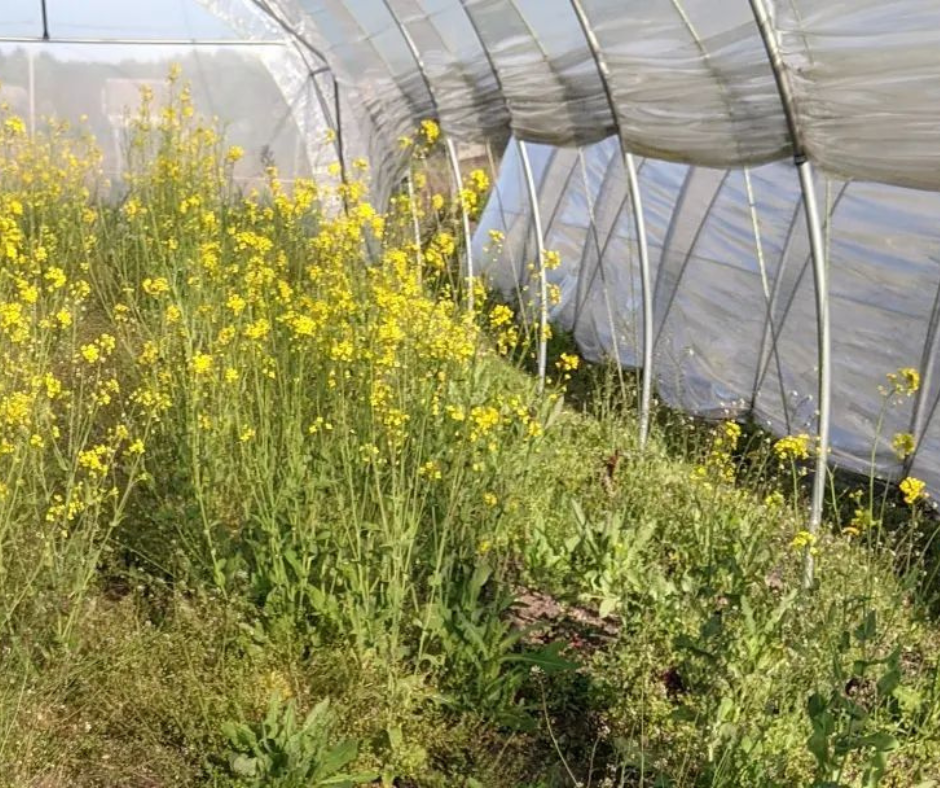
And so they took the tiller, spread compost, and began seeding again. Not only are Ira and Dima determined to feed their community, but they also strive to support others around them to produce their very own vegetables. They ask me if they can use one of my online courses as teaching material for their endeavour.
Resilient agriculture
When my wife Maude-Hélène and I started our Les Jardins de la Grelinette farm almost 20 years ago, we were met by many who thought we were crazy to think that we could earn a living by growing organic vegetables on just 1 hectare. Not only have we proven that it is indeed possible, but we have witnessed the emergence of a movement of like-minded people who strive to change the world through the simple act of feeding their community with food produced in harmony with nature, one small farm at a time.
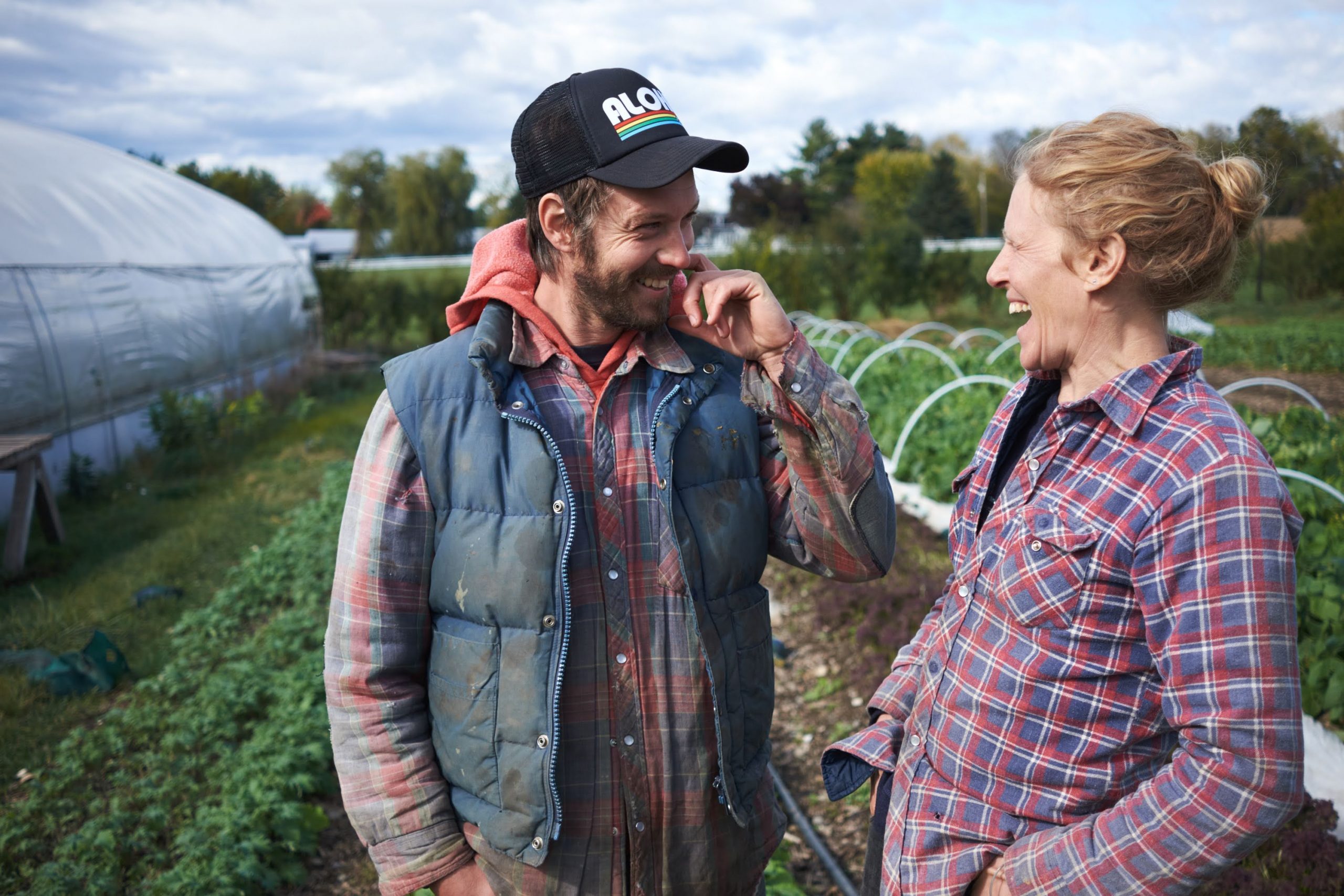
Having both majored in environmental studies at McGill University, we were also aware of the inherent fragility of a globalized food system, oriented towards monoculture and orchestrated by the use of synthetic fertilizers and pesticides rather than the intelligence of nature.
When I wrote my book The Market Gardener, published 10 years ago, I wanted to share our tested methods and techniques so that others could also succeed in their vegetable micro-farm projects. The book took me around the world and allowed me to meet people just like Ira and Dima of Kyiv, who are dedicated to feeding the people around them with healthy food. People who, like us, see human-scale agriculture as an excellent way to have an immediate positive impact on the world. Today, I accompany market gardeners from 87 countries who participate in my online masterclass, and I’m constantly amazed at the global scope of this movement that gives us hope for a better world.
When will we challenge the status quo?
It has always been close to my heart to present solutions, teach how, and provide tools rather than denouncing what is wrong. But after more than 100 days of an abominable war that is causing horror beyond belief, we now see looming the spectre of famine and skyrocketing prices for basic foods, both here and abroad. We must face the facts: the current food system is unsustainable.
The time has come to ask ourselves: what are we waiting for to steer our societies towards more resilient farming in the face of geopolitical disturbances and climate change? Why do we continue to propose agricultural systems based on globalized commodity markets as the only way to feed ourselves? Why continue to subsidize models that destroy soil fertility and ecosystems, and put our health at risk? And why are there so many obstacles for those who want to practise benevolent agriculture that is rooted in nature and the community?
It is our collective responsibility to ask ourselves these questions and find concrete answers to ensure that the world we live in can continue to exist. Meanwhile, Ira and Dima will go on planting the beets, carrots, and lettuce that will feed Kyiv’s neighbourhoods this year, and hopefully for many years to come.
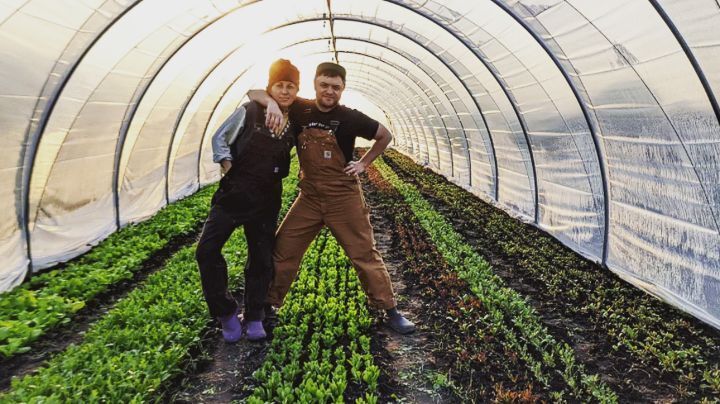
You can find out more and support Morkva Farm’s initiative by visiting their Instagram page. You’ll also find a link to make a donation.
